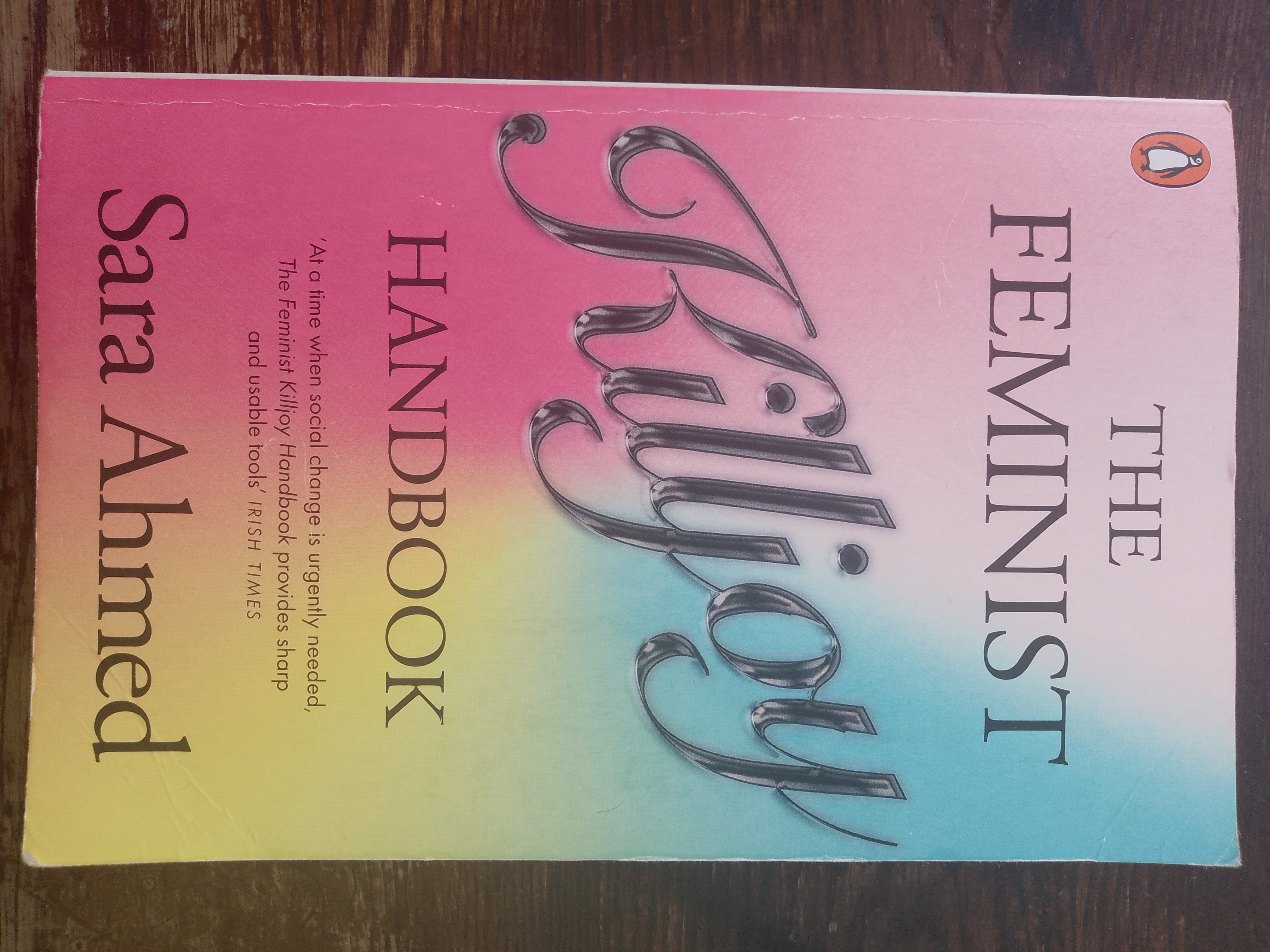Book report: „The Feminist Killjoy Handbook”, and how the Catholic Church in Poland gets away with silencing child abuse.

I want to talk about this book even though many more are waiting on my reading list. It has crystallized something in me that I have long missed.
The Feminist Killjoy Handbook describes how a person who highlights a problem is themselves treated as the problem. A “killjoy” is someone who spoils the mood - points out that a joke is homophobic, or brings up that a planned investment would be unethical. The description is used to ridicule the person trying to point out the problem, and to scare others away from doing the same.
I could never understand why groups of people behave this way. Why do they shoot the messenger? Author Sara Ahmed explains that by pointing out a problem, the “killjoy” is perceived as standing in the way of the other person’s happiness. Ah, something clicked in my head. That’s what happened. I stood in the way of someone’s happiness - and nothing else matters. I stand in the way of happiness - So I must be removed1.
Ahmed takes the description “feminist killjoy” and owns it. She presents an approach that replaces fear of being singled out with a willingness to cause discomfort. According to her, we should reevaluate the relationship to happiness, seen as the highest good, since the concept of happiness is so often used as a justification for ignoring the suffering of others and oppressing them. This does not mean that the goal in itself is to “make others unhappy”, but a “feminist killjoy” is willing to cause discomfort if that is what is needed. Being singled out is also to show the way, writes Ahmed, and in this way we killjoys find other killjoys, in turn being able to support one another.
I apply these lessons from feminist struggle to climate work. How many times have I silenced myself for fear of spoiling the mood? I’ve felt bad afterwards because I could have made someone think, but I missed the chance. However, Ahmed points out that “it’s not always up to you” - your mere presence can be enough to “spoil the mood”. She writes about how the dynamics of a group of white women are affected by the mere entry of a black woman into the room. I experienced something like this when I was recently at a family wedding, and a whole bunch of people at different parts of the evening came up to me and started talking about climate, in their own ways, without me having to bring up the subject (they know I’m an activist).
Feminists can also need to have their moods spoiled. Ahmed writes a lot about “white feminism”, where those who have fought for women’s rights distance themselves from others who are treated unfairly because of racism, or disabilities. Similarly, I can be blinded by windmills and electric cars, and stop seeing the people who are in fact being exploited. Then I must also be ready to have my mood spoiled, to listen, to reevaluate.
Another example is close at hand: The Catholic Church silenced a wide and profound problem of child abuse for a long time. This has now partly come to light, but how much suffering could have been avoided if people had dared to be uncomfortable more often, earlier? Sometimes I am accused of “choosing the wrong moment” to talk about the climate, but when was the right moment to break the silence within the Church? There is no moment that people will say is “good”, because people do not want to hear. I offer this as an addition to the author’s list of tips: “There is no good moment for a message that people do not want to hear”.
Incidentally, the Catholic Church in Poland has backed away from its plans to set up a commission to investigate cases of abuse. All source material is in Polish. This newspaper reports the course of events, the key decision is here, and here is the entirety of the notes from the 401st official meeting of the Polish bishops. In addition to machine translation, however, context is required to understand what even took place. The commission was originally led by Bishop Wojciech Polak, who has experience in investigating sexual abuse within the church. The bishops “thanked him for all the preparatory work” but decided to remove him from the commission and instead have it headed by Bishop Sławomir Oder, who has no experience in the subject. In other words, they make a decision that ensures that the commission will do nothing effective, but at the same time they can claim that they are indeed investigating the cases of child abuse.
Ahmed writes “we have to repeat ourselves, because they keep doing it”. “We” who care, who are victims, or who want to engage with the victims, have to raise the issue again. And again. Be ready to be seen as repeating ourselves, it will happen, let’s expect it and do it anyway.
It has meant a lot for me to read this book. I feel less crazy, feel like I can place the fact that I make people uncomfortable in a broader context of how many others have had to do it to fight against slavery, for women to have the right to vote, and so much more.
And I repeat. Emissions in Sweden are increasing!
-
Compare with the concept “What you see is all there is” (Daniel Kahneman) ↩